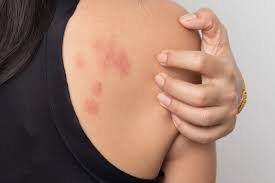Understanding Skin Rash: Causes, Symptoms, and Skincare Solutions

Skin rashes are a common skin condition that can affect people of all ages. They often appear as red, inflamed, or itchy patches on the skin and can be caused by a variety of factors, including allergies, infections, or environmental irritants. While most rashes are harmless and temporary, understanding their causes and how to treat them is essential for maintaining healthy skin. Incorporating the right skincare products into your routine can help soothe irritation and prevent future outbreaks.
What Is a Skin Rash?
A skin rash refers to any noticeable change in the texture, color, or appearance of the skin. Rashes can range from mild irritation to severe inflammation and may be accompanied by symptoms such as itching, redness, swelling, or flaking. They can occur on any part of the body and may be triggered by internal or external factors.
Common Types of Skin Rashes:
- Contact Dermatitis: Caused by direct contact with an irritant or allergen.
- Eczema (Atopic Dermatitis): A chronic condition characterized by dry, itchy, and inflamed skin.
- Heat Rash: Often occurs in hot, humid weather due to blocked sweat glands.
- Hives (Urticaria): Raised, itchy welts caused by an allergic reaction.
- Psoriasis: A chronic autoimmune condition that leads to thick, scaly patches of skin.
Symptoms of Skin Rashes
The symptoms of a skin rash can vary depending on the underlying cause. Common symptoms include:
- Redness or discoloration of the skin.
- Itching or burning sensations.
- Dry, flaky, or scaly skin.
- Swelling or raised bumps.
- Blisters or oozing lesions in severe cases.
If a rash is accompanied by fever, difficulty breathing, or severe pain, seek medical attention immediately, as these could be signs of a serious condition.
Causes of Skin Rashes
Skin rashes can be caused by a wide range of factors, including:
- Allergic Reactions: Common allergens include certain foods, medications, and skincare products.
- Irritants: Harsh chemicals, soaps, or detergents can irritate the skin.
- Infections: Bacterial, viral, or fungal infections can lead to rashes.
- Environmental Factors: Heat, humidity, or cold weather can trigger rashes in sensitive skin.
- Underlying Conditions: Chronic conditions like eczema, psoriasis, or rosacea often cause recurring rashes.
How Skincare Products Can Help Manage Skin Rashes
Using the right skincare products is essential for managing and preventing skin rashes. Here’s how specific products can help:
1. Gentle Cleansers
Harsh soaps and cleansers can strip the skin of its natural oils, leading to irritation. Opt for fragrance-free, hypoallergenic cleansers that are designed for sensitive skin.
2. Moisturizers
Dry skin is more prone to rashes, especially in conditions like eczema. Use a rich, hydrating moisturizer with ingredients like ceramides, shea butter, or hyaluronic acid to lock in moisture and repair the skin barrier.
3. Anti-Itch Creams
For itchy rashes, over-the-counter creams containing hydrocortisone or calamine can provide relief. Look for products with soothing ingredients like aloe vera or colloidal oatmeal.
4. Barrier Creams
Barrier creams with zinc oxide or petroleum jelly can protect the skin from irritants and prevent further damage.
5. Sunscreen
Sun exposure can worsen certain rashes, such as those caused by rosacea or lupus. Use a broad-spectrum sunscreen with SPF 30 or higher to protect your skin.
6. Soothing Serums
Serums with anti-inflammatory ingredients like niacinamide, chamomile, or green tea extract can help reduce redness and calm irritated skin.
Prevention Tips for Skin Rashes
Preventing skin rashes often involves avoiding triggers and maintaining a healthy skincare routine. Here are some tips:
- Patch Test New Products: Before using a new skincare product, test it on a small area of skin to check for allergic reactions.
- Avoid Harsh Chemicals: Choose products labeled as "fragrance-free" and "non-comedogenic."
- Stay Hydrated: Drink plenty of water to keep your skin hydrated from within.
- Wear Protective Clothing: If you’re prone to heat rash or contact dermatitis, wear loose, breathable fabrics.
- Manage Stress: Stress can exacerbate conditions like eczema and psoriasis, so practice stress-reducing activities like yoga or meditation.
When to See a Dermatologist
While most skin rashes can be treated at home, some require professional care. Consult a dermatologist if:
- The rash persists for more than a week.
- It spreads rapidly or covers a large area of the body.
- It is accompanied by other symptoms like fever or pain.
- Over-the-counter treatments are ineffective.
Final Thoughts: Caring for Your Skin
Skin rashes can be uncomfortable and frustrating, but with the right knowledge and skincare routine, they can often be managed effectively. By identifying the cause of your rash and using gentle, soothing skincare products, you can protect your skin and prevent future irritation. Remember, healthy skin starts with proper care and attention.
